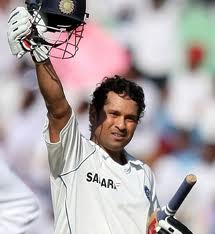An interesting social media incident happened at a college basketball game in Washington recently where a reporter was held for excessive tweeting during a game. It sparked questions around, ' whether there should be a permissible limit for social media activity around a sporting event.' Incidentally during any baseball game, unless a person has a written consent from Major League Baseball, he isn't allowed to broadcast the events in any form on any public platform including social media.
 With the growing popularity of social media is sports, the world is seeing information and opinions around events and announcements travelling at unimaginable speeds. The 20-20 world cup and the London 2012 are premier examples of how organizers are now recognizing platforms like Facebook and Twitter to spread awareness around sporting activities. These platforms are also giving supporters an opportunity to be just a tweet or a Facebook post away from their favorite sportsmen. While, many cricketers are already present on Twitter, icons of Indians cricket including Virender Sehwag and Sachin Tendulkar are using Facebook as a platform to connect with fans.
With the growing popularity of social media is sports, the world is seeing information and opinions around events and announcements travelling at unimaginable speeds. The 20-20 world cup and the London 2012 are premier examples of how organizers are now recognizing platforms like Facebook and Twitter to spread awareness around sporting activities. These platforms are also giving supporters an opportunity to be just a tweet or a Facebook post away from their favorite sportsmen. While, many cricketers are already present on Twitter, icons of Indians cricket including Virender Sehwag and Sachin Tendulkar are using Facebook as a platform to connect with fans. While there is all this social media activity gripping the world of sports, there are also reasons that are forcing Major League Baseball or College Basketball association to curb social media activities at their events. They claim that all the continuous broadcasting by the spectators is making people lose interest in actually buying tickets and witnessing a game. They believe that live-tweeting during matches has been a major reason for the drop in ticket sales.
While there is all this social media activity gripping the world of sports, there are also reasons that are forcing Major League Baseball or College Basketball association to curb social media activities at their events. They claim that all the continuous broadcasting by the spectators is making people lose interest in actually buying tickets and witnessing a game. They believe that live-tweeting during matches has been a major reason for the drop in ticket sales.
Social media might have contributed to reduced exclusivity in sports but claims that it is a reason for a reduction in income for sporting bodies is something that should be considered again. A few reasons I believe that social media is beneficial for sports and its stakeholders including the organizers sportsmen, fans and sponsors is:
- The experience of watching profesional sports live is unmatchable, social media can never replace it.
- Sports has been broadcasted on television forever. Advertisements play a major role in revenue contribution.
- Social media helps create a strong property. The 20:20 World Cup and London 2012 are great examples.
- Social media allows the audience to get involved in the game drawing them closer to the live action.
Sports is all about exclusivity and whether social media will benefit it in the long run is yet be discover. However, one can be quite certain that the way sports fans across the world supported or experienced sports and its personalities has now changed forever. I would like to leave you with this interesting infographic which talks about the change social media has brought to sports and how it has helped build online brands out of events and sporting personalities.












